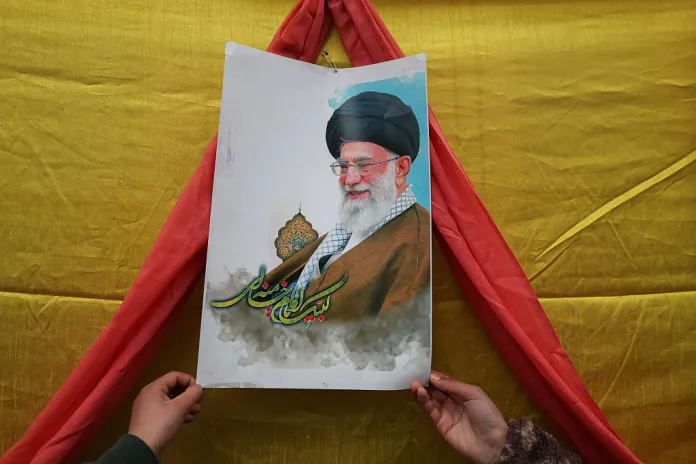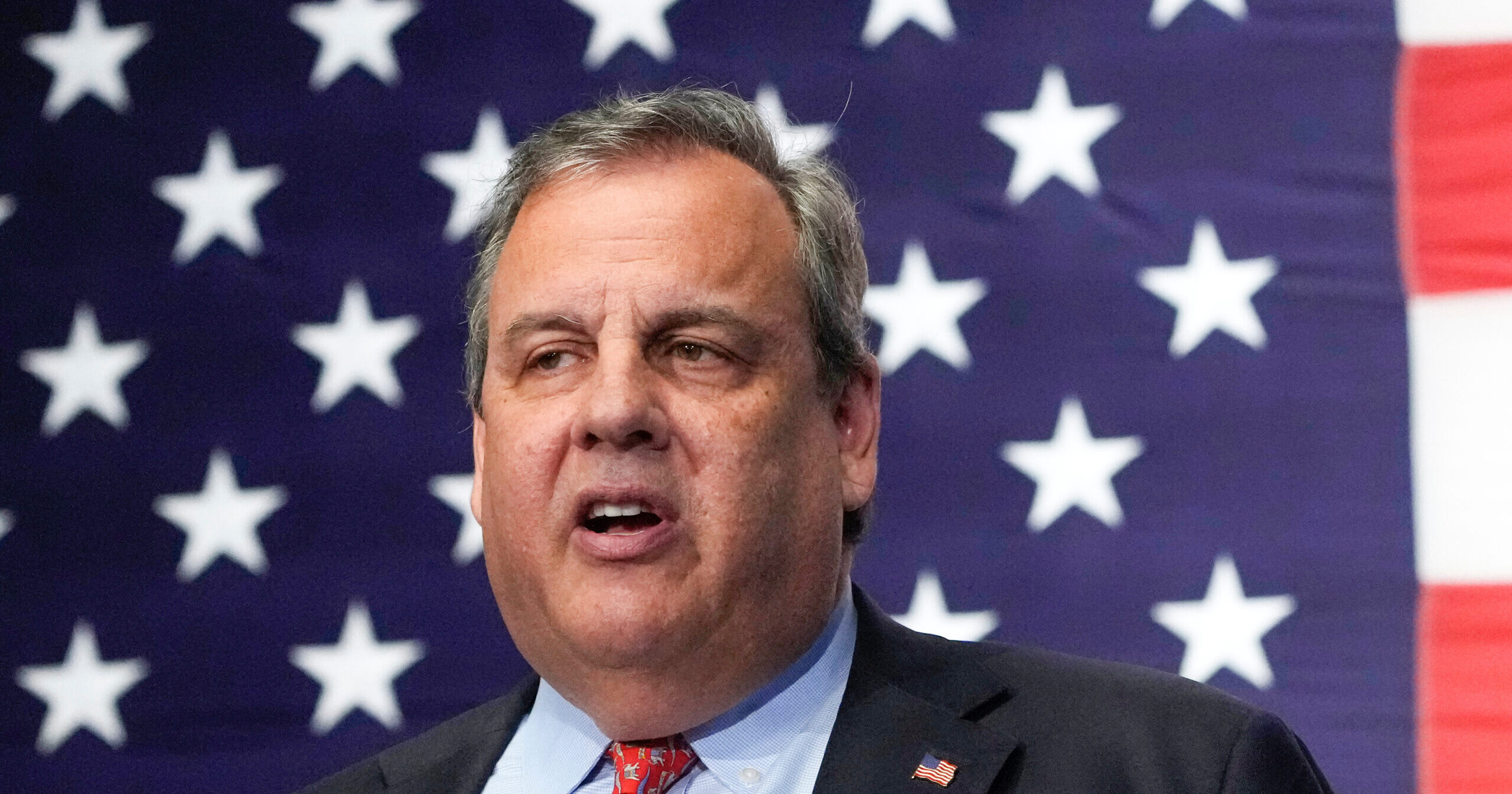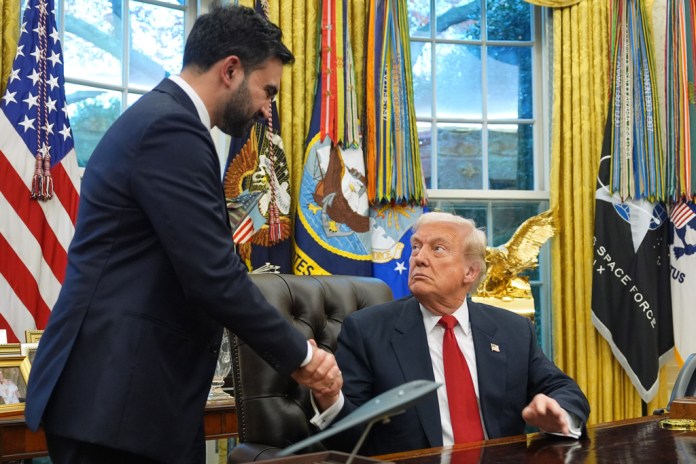The New York Times Wants An America Without Americans
The article discusses Leighton Woodhouse’s recent New York Times opinion piece, which critiques the conservative belief that Americans share a singular, common heritage. Woodhouse argues that the founding fathers were a diverse group with different histories-mainly rooted in Christianity-but that America itself is remarkable not because of a shared cultural lineage, but because it has managed to unify diverse faiths, traditions, and languages thru its governmental system.
In contrast, the article criticizes Woodhouse’s view, emphasizing that America was fundamentally created by English colonists who shared language, culture, and Christian values, and who established the nation’s legal and civic framework based on the idea that “all men are created equal.” It highlights that America’s identity is deeply tied to the heritage of those early settlers and their sacrifices, quoting past figures like Daniel Webster and Abraham Lincoln to underscore the importance of a shared lineage and collective memory in nation-building.
The author argues that while newcomers can become Americans, the nation’s foundation and endurance depend on recognizing the unique legacy of its original people. Woodhouse’s vision-that America is simply a cosmopolitan mix where any ancestry is equally foundational-is presented as flawed as it overlooks the role of heritage and continuity in maintaining the country’s identity. Ultimately,the article stresses that America cannot survive without honoring the Americans who created it.
On Tuesday, Leighton Woodhouse wrote for The New York Times that conservatives are “spinning” a “mythology” that is “historically delusional.”
The delusional mythology Woodhouse is referring to? The belief that Americans are a “group of people with a shared history.”
According to Woodhouse, “The founding fathers were an assortment of people from different histories and backgrounds who coexisted — often just barely.” These “different” histories, however, were all rooted in Christianity. But Woodhouse wants readers to believe that this type of variety in Christianity proves America was born out of a multicultural diversity experiment.
Of course it wasn’t. The colonists shared a common language, moral framework, and writ large, a lineage. Yet Woodhouse insists otherwise.
The United States isn’t exceptional because of our common cultural heritage; we’re exceptional because we’ve been able to cohere despite faiths, traditions and languages that set us apart, and sometimes against one another. The drafters of the Constitution tried to create that cohesion by building a government that could transcend our divisions.
In other words, Woodhouse is arguing that America is not the product of Americans at all. Rather, it’s just a cosmopolitan conglomerate held together by particular processes but not people. It’s why Woodhouse invokes “Mexican, Korean, Somalian” “anestries” as similar examples of American heritage just like English, Irish, and Scottish settlers. The implication of course is that America would be just as American even without “heritage Americans.”
But that’s not how nations work. As The Federalist’s John Daniel Davidson wrote in these pages, the very premise of the entire American legal and civic culture emerged from the specifically Christian claim that “All men are created equal,” and such conviction “arrived in America by way of settlers and pioneers who came here specifically to establish a nation where they could practice their Christian faith as they saw fit.”
“The only people who ever took that self-evident truth [that all men are created equal] and used it as a foundation on which to forge a new nation were the English colonists in America,” Davidson pointed out. Not Mexicans, not Koreans, not Somalians, but English colonists who created America and thus became the first Americans.
And despite Woodhouse’s best efforts, there is in fact such a thing as a heritage American. They are the descendants of those who settled this land, fought for its independence, and built our institutions. The great statesmen of our nation understood this. They spoke not of a diverse collection of foreigners as tying the nation together, but of a people bound by blood, memory, and the sacrifices of the generations that came before them.
Daniel Webster said in 1825: “We are among the sepulchers of our fathers. We are on ground distinguished by their valor, their constancy, and the shedding of their blood.”
Abraham Lincoln pulled this thread often.
In his 1838 Lyceum Address, Lincoln discussed our “political institutions” and our civil and religious liberties and said we are the “legal inheritors of these fundamental blessings” because of the “brave, and patriotic … race of ancestors.”
“Their’s was the task … to possess themselves, and through themselves, us, of this godly land; and to uprear upon its hills and its valleys, a political edifice of liberty and equal rights; ’tis ours only, to transmit these, the former, unprofaned by the foot of an invader,” Lincoln said, later invoking the “task of gratitude to our fathers.”
Lincoln also said: “At the close of [the Revolution] … nearly every adult male had been a participator in … its scenes. The consequence was, that of those scenes, in the form of a husband, a father, a son or brother, a living history was to be found in every family. …”
Lincoln further weaved this thread into his first inaugural address: “Though passion may have strained, it must not break our bonds of affection. The mystic chords of memory, stretching from every battle-field, and patriot grave, to every living heart and hearthstone, all over this broad land, will yet swell the chorus of the Union, when again touched, as surely they will be, by the better angels of our nature.”
Lincoln, like those before him, understood something that Woodhouse clearly does not: A nation is not a random assortment of people. A nation is a group of people with shared language, culture, and history. Those things do come, in part, from lineage. That’s not to say that anyone who can’t trace their lineage back to the founding isn’t American. But that is to say that those who trace their lineage to the founding should be proud of their ancestors, who drew upon the inheritance of Christian Europe to forge a nation where liberty and peace could flourish.
In Woodhouse’s vision, anyone from anywhere can come to America and claim equal ownership of the American story, as if America would remain the same without the people and the descendants of those people who created it.
But it wouldn’t.
America cannot survive without Americans.
Brianna Lyman is an elections correspondent at The Federalist. Brianna graduated from Fordham University with a degree in International Political Economy. Her work has been featured on Newsmax, Fox News, Fox Business and RealClearPolitics. Follow Brianna on X: @briannalyman2
" Conservative News Daily does not always share or support the views and opinions expressed here; they are just those of the writer."




